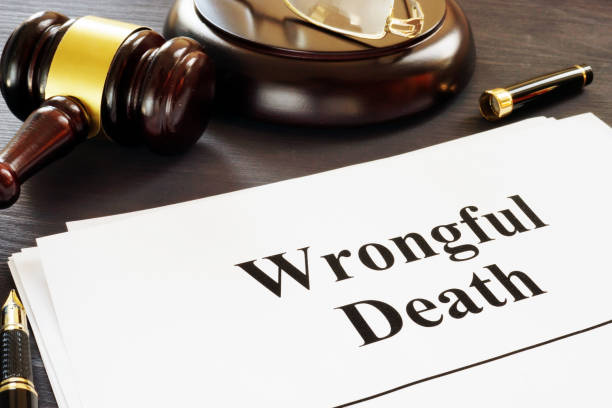
Per Title 12, Section 611 of the Arizona Revised Statutes, wrongful death occurs when a person dies due to another person’s wrongful act or negligence. For example, if a person survived being hit by a driver who was driving negligently, the victim could sue the driver in a civil suit for personal injury. However, if the victim was hit and died, a case for wrongful death can be filed against the negligent driver. Another example of where a wrongful death case can arise is when a patient dies in a hospital due to medical malpractice.
Wrongful death cases can only be brought by the surviving spouse of the deceased, child, parent or guardian, or a personal representative of the deceased person on behalf of a surviving child, spouse, parent, or guardian. If no spouse, child, parent, or guardian survives the deceased, then the deceased’s personal representative can bring a claim on behalf of their estate.
In a case for wrongful death, the plaintiff can seek two types of damages against the defendant. These are economic and non-economic damages. Economic damages are amounts paid to the deceased’s family to cover the financial losses incurred due to their death. They include funeral costs, medical expenses incurred, and the lost wages and benefits that the deceased would have earned had it not been for their death.
Noneconomic damages are associated with intangible losses. These are losses incurred by the deceased family in the form of loss of love, affection, and companionship and the emotional pain and suffering associated with the loss of their loved one. It also includes the loss of household support the deceased would have provided. Arizona does not have a cap for these damages, as some states do.
To succeed in a wrongful death case and recover damages, a plaintiff must prove the defendant’s liability by a preponderance of the evidence. In other words, the plaintiff must show that it is more likely than not that the defendant was responsible for the deceased’s death. This is a much lower standard than in criminal cases where the prosecutor must prove the defendant’s guilt beyond a reasonable doubt.
There are several defenses that a person accused of wrongful death can use to avoid liability. One is that the action is time-barred. The statute of limitations for wrongful death actions in Arizona is two years. That means the deceased person’s family has two years from the date the deceased passed on to file a wrongful death case, after which the court should refuse to hear such a case.
A defendant’s lawyer can use other defenses: the assumption of risk where the attorney argues that the deceased knew that they were participating in a dangerous activity and comparative negligence where the attorney shows that the deceased was partly negligent, causing the accident.
There are also mitigating factors that can reduce the number of damages a defendant is liable to pay if they are found liable. A personal injury defense attorney will help them pursue these options.
from WordPress https://ift.tt/3htHY7Z
via IFTTT

